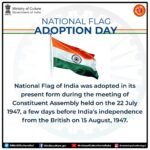India Signs Grant Agreement with IBRD, US $ 9.20 million for Efficient and Sustainable City Bus Service Project

The Government of India and the World Bank today signed a US$ 9.2 million grant agreement under the World Bank-Global Environment Facility (GEF) Program for the Efficient and Sustainable City Bus Service Project to improve the efficiency and attractiveness of bus services in select Indian cities. The initiatives for modernizing city bus transport services under this project will help select cities reduce greenhouse gas emissions (GHG) while offering practical transport solutions.
The project is designed to specifically focus on identifying regulatory, institutional and fiscal constraints to operation of sustainable city bus services; addressing the weak capacity in the urban bus sector and facilitating the development of a vibrant urban bus sector community through the development of a comprehensive capacity building program including training programs, knowledge and exchange events for sharing of best practices and experiences among public and private stakeholders; and targeting city-level modernization interventions in demonstration cities to showcase initiatives around depot modernization, intelligent transport systems and management information systems, business planning and fuel efficiency among others.
The project’s development objective is to improve the efficiency and attractiveness of city bus transport and reduce greenhouse gas emissions in the demonstration cities. It comprises: (i) a national capacity building component to be implemented by Ministry of Urban Development (MoUD); and (ii) city demonstration projects in the cities of Bhopal, Chandigarh, Jaipur and Mira Bhayandar.
CROSS REFRENCES
The World Bank Group-Global Environment Facility (GEF) directly support actions to combat major environmental issues such as climate change, loss of biodiversity, polluted international waters, land degradation and desertification, and persistent organic pollutants, as well as stimulate green growth. The program supports an active portfolio of over 200 investments globally.
The Global Environment Facility (GEF) was established on the eve of the 1992 Rio Earth Summit, to help tackle our planet’s most pressing environmental problems. Since then, the GEF has provided $14.5 billion in grants and mobilized $75.4 billion in additional financing for almost 4,000 projects. The GEF has become an international partnership of 183 countries, international institutions, civil society organizations, and private sector to address global environmental issues.
The World Bank was created at the 1944 Bretton Woods Conference, along with the International Monetary Fund (IMF). They are also referred as Bretton Wood twins. The World Bank Group is headquartered in Washington, D.C. John Maynard Keynes and Harry Dexter White, are the “founding fathers” of both the World Bank and the International Monetary Fund (IMF). Jim Yong Kim is the present president of the Bank.
The World Bank is an international financial institution that provides loans to developing countries. Its mission evolved from the International Bank for Reconstruction and Development (IBRD) as facilitator of post-war reconstruction and development to the present-day mandate of worldwide poverty alleviation. The World Bank is a vital source of financial and technical assistance to developing countries around the world. The World Bank Group comprises five institutions:
The International Bank for Reconstruction and Development: The International Bank for Reconstruction and Development (IBRD) lends to governments of middle-income and creditworthy low-income countries.
The International Development Association: The International Development Association (IDA) provides interest-free loans — called credits — and grants to governments of the poorest countries.
The International Finance Corporation: The International Finance Corporation (IFC) is the largest global development institution focused exclusively on the private sector. It helps developing countries achieve sustainable growth by financing investment, mobilizing capital in international financial markets, and providing advisory services to businesses and governments.
The Multilateral Investment Guarantee Agency: The Multilateral Investment Guarantee Agency (MIGA) was created in 1988 to promote foreign direct investment into developing countries to support economic growth, reduce poverty, and improve people’s lives. MIGA fulfills this mandate by offering political risk insurance (guarantees) to investors and lenders.
The International Centre for Settlement of Investment Disputes: The International Centre for Settlement of Investment Disputes (ICSID) provides international facilities for conciliation and arbitration of investment disputes.






0 Comments